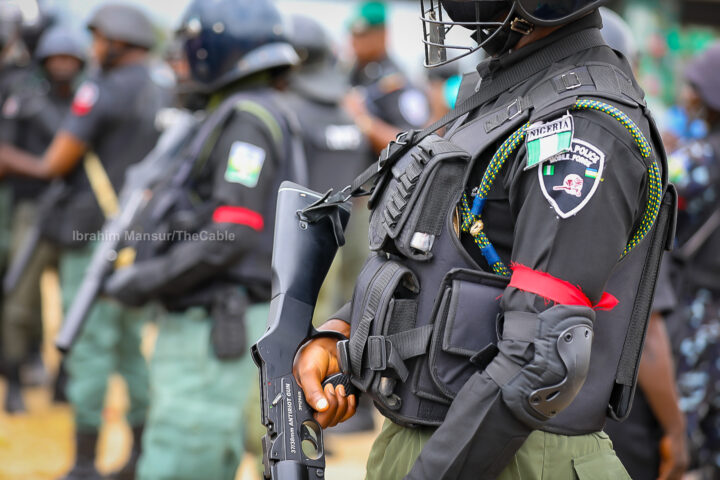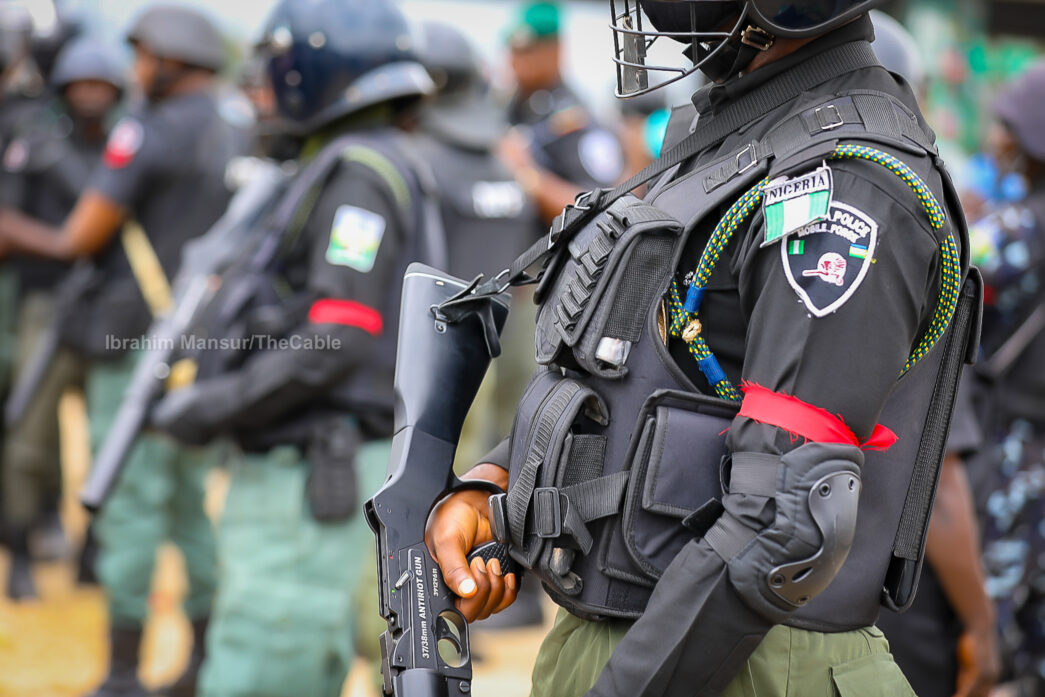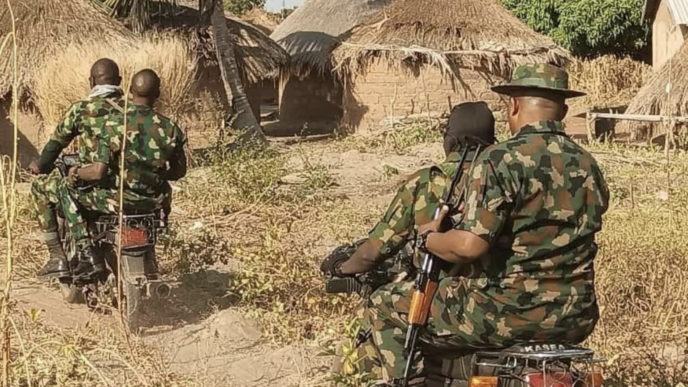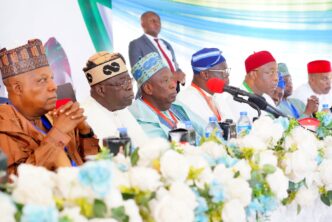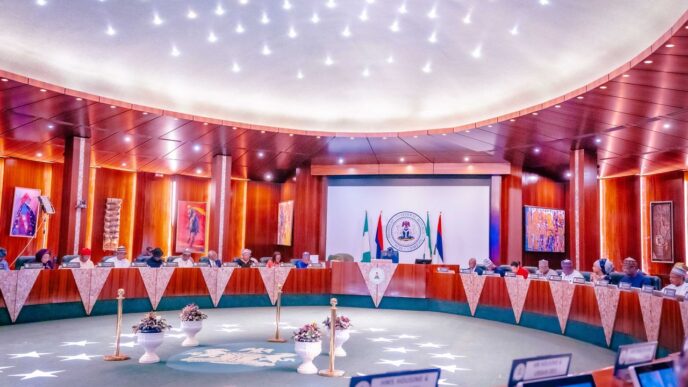BY SEGUN OGUNLADE
In Nigeria, the line between right and wrong is often blurred by survival, power, and systemic dysfunction. Nowhere is this more apparent than in the operations of the Nigerian police. Entrusted with maintaining law and order, they are expected to be the embodiment of societal morality and the defenders of justice and public safety. Yet, time and again, the police have been implicated in acts of extortion, brutality, and complicity with the very criminal elements they are meant to combat. The dilemma of the Nigerian police is a moral one that is entangled in a broader national crisis: a culture where morality and criminality are not always opposites, but sometimes overlapping strategies of existence.
The root of this dilemma can be traced back to the colonial era. The Nigerian police, like many institutions in post-colonial African states, was originally structured not to serve the people but to suppress them and force them into submission. The colonial administration used the police primarily to enforce order, extract taxes, and suppress dissent, particularly in rural areas. Post-independence, although the mandate of the police changed, the structure of authority remained top-down and repressive. The force inherited a system that valued obedience over service and the use of force over dialogue.
This historical legacy lingers. The average Nigerian does not view the police as allies or protectors but as threats—armed men in uniform who are as likely to harass as they are to help. They believe the phrase “police is your friend” is a barefaced lie. This perception is reinforced daily at police checkpoints where citizens are randomly searched, questioned, or detained—often with a subtle (or explicit) demand for money to “settle” the matter on the spot.
Advertisement
The common case of roadside extortion continue to plague the Nigerian police. In Lagos, Ibadan, or Port Harcourt, it is not unusual to see police officers stopping commercial bus drivers or keke riders, ostensibly for document checks. Yet behind the ritual of checking licenses or verifying insurance papers lies an unspoken transaction: a bribe disguised as “settlement.” For drivers, this is simply the cost of doing business. For officers, it is a supplement to meagre wages.
Here, the moral waters are murky. The officer may argue that with a salary of barely ₦90,000 a month, supporting a family without resorting to extra income is nearly impossible. Some even say that the government owes them salaries for months. The driver, in turn, sees the bribe not as corruption, but as negotiation—more moral, in his eyes, than having his vehicle impounded or paying a bigger fine in court.
But this overlap between morality and criminality does more than breed inefficiency—it legitimises deviance. It creates an environment where personal ethics are no longer based on legality, but on what one can get away with. The police officer who brutalises a civilian during an arrest may claim it was necessary force. The officer who extorts from a youth with dreadlocks justifies his suspicion as “prevention.” In all of these cases, morality becomes subjective, fluid, and dangerously malleable.
Advertisement
Nigerians are not unaware of this double standard. While the poor are punished for petty crimes, the rich often escape scrutiny. Consider the EFCC’s periodic “Yahoo Boys” raids in cities like Benin or Abeokuta, where young men are rounded up in their dozens—sometimes without clear evidence—under suspicion of internet fraud. These young men, if caught, are paraded before the media and charged with “obtaining by false pretences.”
Yet, the same energy is rarely applied to high-level public officials who embezzle billions or inflate government contracts, what is known as budget padding in Nigerian legislative lingo. An officer who arrests a poor boy for owning an iPhone X may later escort and guard a politician under investigation for money laundering. The contradictions are glaring, and the public sees them. This breeds not just resentment, but a dangerous cynicism: the belief that crime is only wrong when committed by the poor.
In some cases, the police are not merely complicit in criminality—they are active participants. Several reports have implicated officers in armed robbery, kidnapping, and illegal arms dealing. The 2019 killing of Kolade Johnson by officers of the Special Anti-Robbery Squad (SARS) in Lagos shocked the nation but was hardly the first of its kind. The #EndSARS protests in 2020 were a culmination of years of abuse, extrajudicial killings, illegal detention, and extortion, particularly of young Nigerians.
One widely reported case was that of Chibuike Daniel Ikeaguchi, popularly known as Sleek, who was killed by a policeman in Rivers State while allegedly fleeing arrest. Eyewitnesses claimed he was unarmed and posed no threat. Another case involved Miracle Abraham, a 15-year-old girl allegedly raped by officers at a police station in Lagos. These are not outliers—they are symptoms of an institution where some officers believe their uniform grants them immunity from consequences. The police badge give them something to hide behind.
Advertisement
The moral compromises of individual officers cannot be separated from the institutional rot. Many police stations lack basic infrastructure—no electricity, no functional vehicles, no stationery. Officers buy their own uniforms, fuel patrol vehicles from their pockets, and sometimes depend on community donations to fund investigations. Promotions are slow and often politicisd. Psychological support is virtually non-existent, even for officers who witness or experience trauma in the line of duty. The families of those that died while is service are oftentimes not supported by the government.
In such a system, what does it mean to be a “good” officer? An upright policeman risks being ostracised by colleagues, denied promotions, or posted to hostile areas. Whistleblowers are not protected. Integrity, therefore, becomes a liability rather than an asset. This makes morality a career hazard and not a guiding principle that should be emulated.
The problem is not just within the force; it is also cultural. In many communities, the line between legitimate wealth and criminal enrichment is not always clear. Yahoo boys are hailed as local celebrities. Fraudsters sponsor music videos, build churches and sponsor charity events. Police officers, too, are caught in this contradiction. They may arrest a cybercriminal during the day and party with one at night. Some attend naming ceremonies or weddings sponsored by known drug dealers but paraded young boys in the same business.
Furthermore, families and communities often place moral pressure on officers to provide, no matter the means. A young officer may be mocked at family gatherings for not building a house or buying a car, even as others benefit from his “returns.” In this context, refusing to take bribes is not seen as noble—it is seen as foolish.
Advertisement
The dilemma of the Nigerian police, then, is not merely about corruption or incompetence—it is about the erosion of shared moral standards. When morality becomes relative, and criminality is excused as necessary hustle, the very idea of justice is undermined. The rule of law cannot thrive where ethical lines are constantly negotiated based on status, connection, or desperation.
To address this, Nigeria must invest in police reform as more than policy—it must be cultural rehabilitation. This includes:
Advertisement
1. Improved Welfare: Officers must earn a living wage and be provided with essential tools, housing, and healthcare. Financial desperation should not be a justification for misconduct.
2. Ethical Training: Recruits should undergo rigorous training not just in physical discipline but in human rights, conflict mediation, and the ethics of force.
Advertisement
3. Civilian Oversight: Independent bodies must investigate and prosecute cases of abuse and misconduct. The police should not police themselves.
4. Public Engagement: Community policing must go beyond slogans. Officers should be embedded in neighborhoods, building trust, solving problems, and being accountable to those they serve.
Advertisement
5. Psychological Support: Counselling and trauma care should be standard, especially for officers exposed to violence or high-risk environments.
6. Legal Reforms: Laws that enable impunity must be reviewed. Officers found guilty of abuse must face real consequences, not administrative transfers.
In the end, the Nigerian police is not just a force—it is a mirror. It reflects the values, contradictions, and aspirations of the nation. A society that celebrates dishonest wealth cannot expect its police to be paragons of virtue. A system that punishes truth-tellers and rewards the corrupt cannot expect moral courage from its enforcers. Reforming the police, then, is also about reforming ourselves—our politics, our cultures, and our definitions of right and wrong.
The challenge is immense, but it is not impossible. The #EndSARS movement proved that Nigerians want better policing—and are willing to demand it. What remains is the political will, institutional commitment, and societal honesty to face the dilemma head-on. Only then can the police become what they were meant to be: not instruments of oppression, but guardians of justice in a truly moral society.
Segun Ogunlade can be contacted via [email protected]
Views expressed by contributors are strictly personal and not of TheCable.
